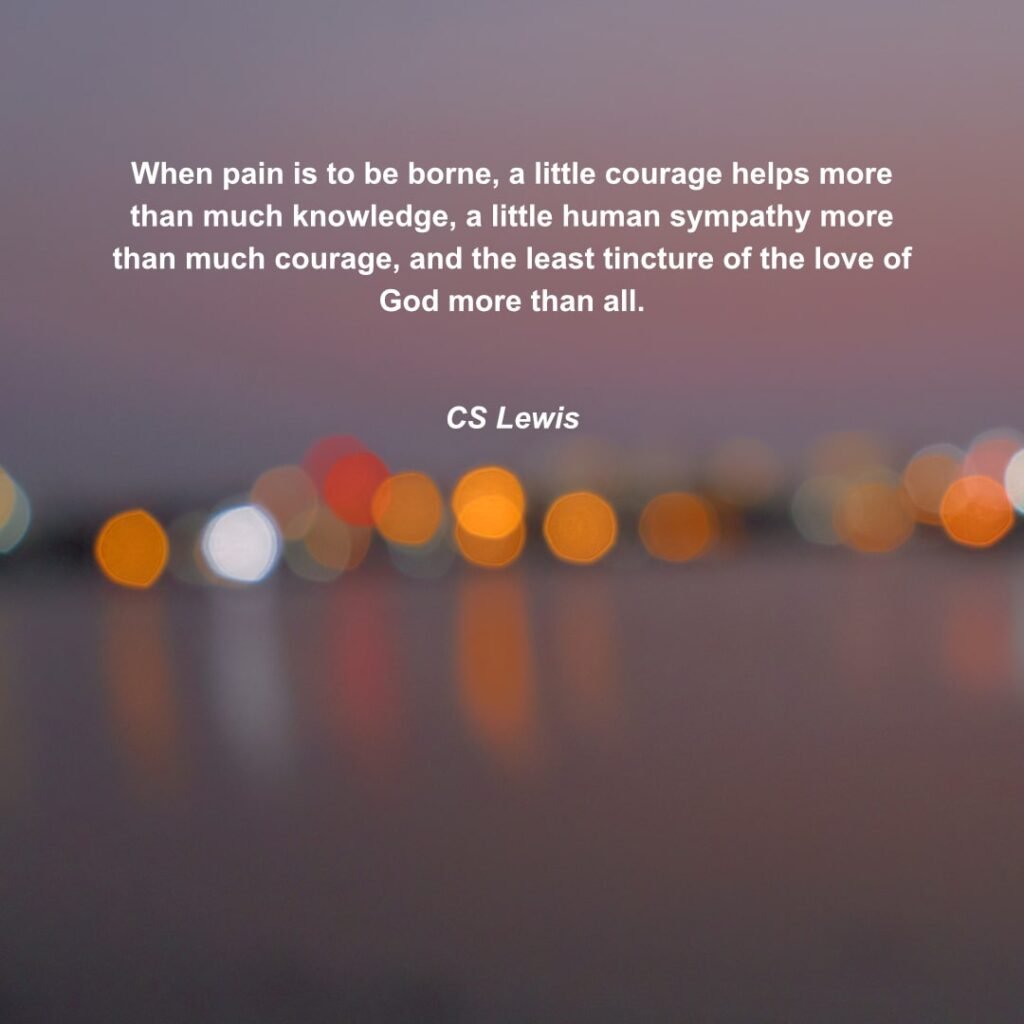
This is what no one tells you about addiction
Sometimes people are so accustomed to your past behavior that even positive changes you bring to your life can disturb them.
There’s a story I remember, of Billy.
Billy was an alcoholic. For 20 years or so, he drank everyday. Through good days and bad. Through highs and lows. Soon enough, slowly, his world began to fall apart. Jobs came and went. Friends disappeared. But Lois stayed. Lois was Billy’s wife.
Billy met Lois during this dark stretch of his life — a time when he was at his lowest. Yet, despite the chaos, she saw something in him. Something worth staying for. Only a woman like Lois could see value in a man like Billy. They were secretly engaged. But a couple of years later, they got married. And for the next 44 years, till the day Billy died in 1971, Lois never left his side. Not once.
Lois was a deeply religious woman. Her faith wasn’t loud or dramatic. It was quiet, stubborn, and unwavering. Every single day, she prayed. She folded her hands and asked God to heal her husband.
It must have felt like shouting into the the thin air. Two years passed. Then five. Then ten. But Lois didn’t stop. She prayed through the relapses. Through the nights Billy didn’t come home. Through the mornings when he smelled of regret and stale alcohol.
It took God about two decades to hear her prayers. Billy finally quit alcohol… with some help, of course.
Change can be unsettling for those accustomed to your old self.
As a former Social Worker, one thing I’ve observed with alcoholism is that patients rarely take traditional counselling seriously.
You can provide all the right information — psychological insight, therapy sessions, support groups — but often, it feels as though you’re speaking into thin air. They’ll sit there, nod at everything you say but deep down, they’re not really present at all. Mentally, they have checked out.
And it’s not that they don’t know what they ought to do. In fact, many of them are painfully aware of the steps they should take to break free from addiction. The issue isn’t a lack of knowledge — it’s just that they are unable to.
The other thing that I’ve also observed is: they’re far more likely to listen to someone who has walked in their shoes. Someone who gets it not just intellectually, but experientially too.
That’s why former addicts — those who’ve lived through the same darkness and come out the other side — often become the most effective counsellors. We call them experiential counsellors. (Most don’t have a formal fancy degree).
They bring something no textbook or therapy manual can offer: lived experience. And in addiction recovery, that makes all the difference.

During a session with one of the experiential counsellors — let’s call him Rajesh (name changed) — he shared his personal story. He must have been in his early 50s.
“Whenever I reach home late from work, my mother still asks me, ‘Pi ke toh nahi aaya hai?’ (Have you drunk and come home?)”
He paused, visibly frustrated.
“Even now, after being sober for over 20 years, she still doesn’t trust me.”
Rajesh continued:
“I am in my 50s and yet even today she still asks to smell my breath. As alcoholics, this is something we have to live with for the rest of our lives.”
When someone in a family is an alcoholic, the addiction doesn’t just affect the one who drinks — it leaves a scar on the entire family, probably for the rest of their lives.
Even though Rajesh had been sober for more than two decades, for his mother, something about him still felt unfamiliar. She couldn’t quite trust the change, no matter how real it was. It wasn’t just about quitting alcohol — it was the years of broken trust, of hurt, of fear — all those nights she waited, wondering if he would come home without getting drunk.
Rajesh’s past behavior had taken a toll on his mother’s mental health, a wound from the past that never healed until the day she died.
Also: 9 Lessons people learn too late in life. You’ll never believe number 4.
When the prodigal son returns, there is always someone who isn’t happy
Coming to Lois:
You’d think that now that Billy had quit drinking, it would have brought her peace, that surely she’d feel relief. Maybe even joy.
But it didn’t come.
Lois had spent so many years watching him spiral, carrying the weight of his addiction, that when he finally did change, the transformation felt… unfamiliar.
Even unsettling.
Strange, isn’t it?
The man she had prayed, would recover had changed, yes. But yet she was unhappy!
She found herself feeling agitated, even disconnected, and eventually fell into a deep depression.
“The trouble with change is that people around you get attached to who you’ve always been; transforming yourself, even into someone better, can still leave them feeling uneasy.”
Read about these unacceptable mistakes!
Alcohol isn’t the issue
Hear me out.
Like money, wealth, and power, alcohol merely exposes your character. Not just yours, but also your family’s… Under extreme stress, everybody breaks down; very rarely can people maintain their dignity or composure.
Alcoholism is a family disease: What do I mean by this?
For example,
The person who drinks may head to a theka or dhaba early in the morning to drink as soon as he wakes up. He might have not even caused any problem that morning. Yet the emotional dynamic in his house tells a different story.
While he’s gone, his mother might lash out at his father: “He drinks because you give him money.”
In turn, the father might retort, “No, it’s because you spoiled him as a child. He never learned any discipline. This is your fault.”
And just like that they begin blaming each other. And soon enough the families break apart.
His younger sister, overwhelmed by the tension, may choose to stay away so that she can avoid the family drama.
You see? The one who drinks hasn’t even said a word yet his house is on fire!
Just saying this but his parents could have handled the crisis better…???
(Easier said than done!)
Why allow things outside your control ruin your relationship with your spouse?
Blaming each other isn’t going to make their son stop drinking, but it will definitely break their family apart. Whatever the son has done, he’s done — but allowing his behaviour to scar your mental sanity? Isn’t helpful.
Going through such an experience as a family requires deep reflection/spirituality to stay sane.
That’s why when an alcoholic quits drinking, counsellors often say recovery is only half done — because the other half lies with the family. Alcoholism doesn’t just make one person sick — it sickens the entire household.
In fact, studies and experience show that when families actively participate in the recovery process, the alcoholic’s chances of relapse are significantly lower. But when families remain uninvolved or emotionally detached, relapse is far more likely.
That’s the reason when Billy finally got sober, she didn’t feel the peace she expected. Instead, she found herself restless, even unhappy — and she didn’t fully understand why.
That’s the thing about trauma: it doesn’t just hurt us — it distorts how we process joy, change, and even healing. Unless we’re willing to engage in honest self-reflection — and that’s rare — we remain stuck in the patterns of our past.
Conclusion
What truly matters in life is not how your begin, but rather how you finish the race. Bill and Lois’s love story is a testament to this truth — a journey marked by pain, perseverance, and purpose.
Bill Wilson (Billy) eventually recovered and went on to co-found Alcoholic Anonymous (AA) on June 10, 1935 along with Dr. Bob Smith in Akron, Ohio. This date is considered the official founding of AA, marked by Dr. Bob taking his last drink and beginning his journey of sobriety with Bill’s support. AA is a global fellowship of individuals who support each other in their journey to overcome alcohol addiction.
Further, drawing from his own struggles, Bill Wilson was also instrumental in shaping what we now call the “Big Book” — the foundational text of AA, published in 1939. It introduced the Twelve Steps, guiding principles that have helped millions achieve and maintain sobriety.
Meanwhile Lois Wilson, Billy’s wife, seeking healing of her own, also later went on to co-found Al-Anon in 1951, a fellowship designed specifically for families and friends of alcoholics. Through this initiative, she carved out a space of support and understanding for those who had been suffering quietly in the shadows of someone else’s addiction, giving voice to pain that had long gone unheard.
Together, Bill and Lois transformed their private pain into a public legacy. A legacy that continues to save lives even today — including mine.
References:



